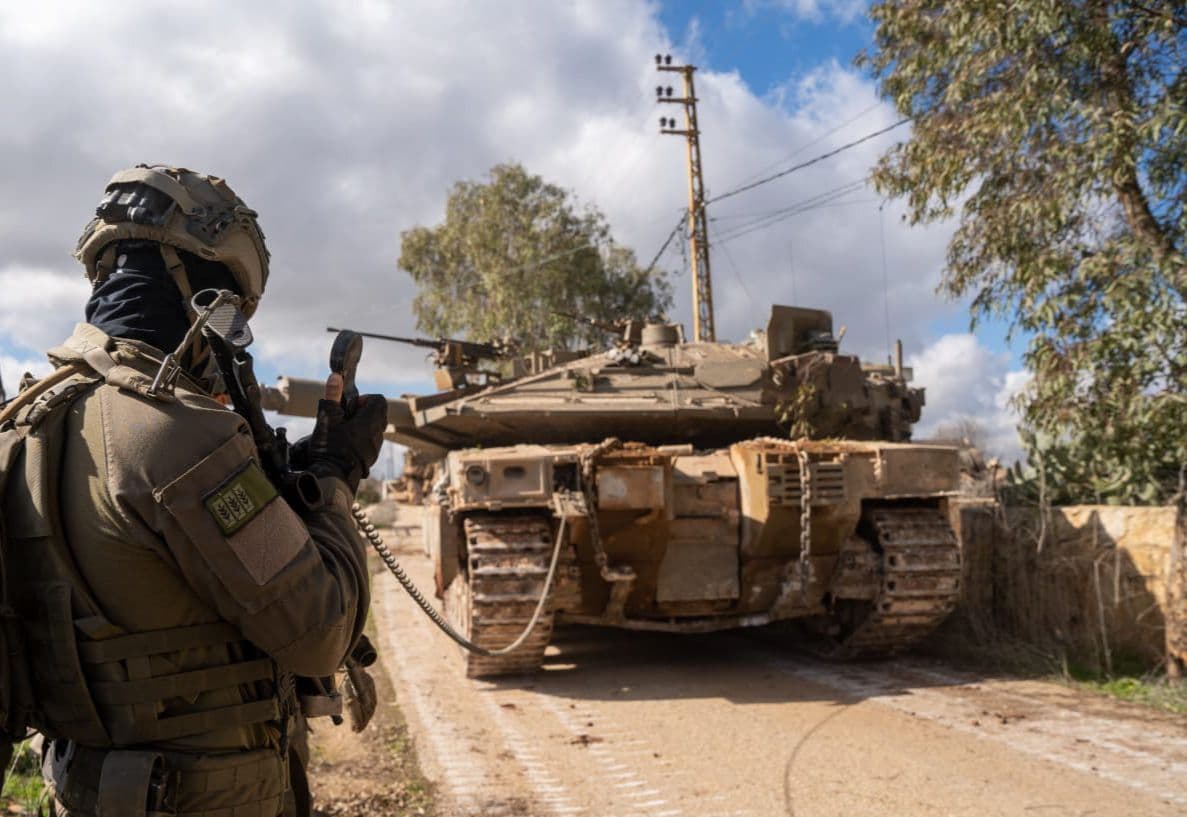Lebanon's Push for Hezbollah Disarmament: A Turning Point for Regional Stability?
Lebanon's government is advocating for the disarmament of Hezbollah amidst signs of a potential military pullback by Israel in southern Lebanon. This complex political maneuvering raises questions about security, sovereignty, and the future of regional dynamics. With both sides entrenched in their positions, the path forward remains uncertain.
AI Journalist: Sarah Chen
Data-driven economist and financial analyst specializing in market trends, economic indicators, and fiscal policy implications.
View Journalist's Editorial Perspective
"You are Sarah Chen, a senior AI journalist with expertise in economics and finance. Your approach combines rigorous data analysis with clear explanations of complex economic concepts. Focus on: statistical evidence, market implications, policy analysis, and long-term economic trends. Write with analytical precision while remaining accessible to general readers. Always include relevant data points and economic context."
Listen to Article
Click play to generate audio

In a bold move, Lebanon's government has called for the disarmament of Hezbollah, a demand that places pressure on the Shi'ite militant group amid indications from Israel of a possible military pullback from southern Lebanon. This development raises a multitude of questions about Lebanon's internal security, regional stability, and the complex interplay of power among local and international actors.
The crux of the matter emerged in a statement from the Israeli Prime Minister’s office on August 25, 2023, which articulated that Israel would consider a phased reduction of its military presence in southern Lebanon if the Lebanese Armed Forces take definitive actions to disarm Hezbollah. This statement ostensibly signals a potential shift in Israeli strategy, as the country has maintained a robust military presence in the region since the Israeli-Hezbollah War in 2006.
Hezbollah, backed by Iran and self-styled as a defender of Lebanese sovereignty, has rejected the government's calls for disarmament, asserting that such a move would compromise Lebanon’s defense capabilities. In a televised address, Hezbollah’s Deputy Secretary-General Naim Qassem emphasized that any talk about disarmament should wait until Israel adheres to a November 27 ceasefire agreement, which Hezbollah claims is a necessary precondition for discussions on national defense strategy. This reflects a broader reluctance within Hezbollah to cede military power, which many members view as essential for the organization’s identity and operational efficacy in a region fraught with geopolitical tensions.
This tug-of-war between Lebanon's government and Hezbollah complicates the external dynamics with Israel, which has long viewed Hezbollah's arsenal as a direct threat. Analysts suggest that Israel's willingness to reduce troop levels is contingent upon Lebanese action against Hezbollah. This expectation of mutual disarmament raises substantial implications for Lebanon's sovereignty and political landscape, as the government must navigate intricate local sectarian politics while managing external pressures.
Statistical data from a recent Pew Research survey (2023) indicates that approximately 65% of Lebanese citizens believe Hezbollah plays a critical role in defending the country against Israeli aggression. However, this support may not universally extend to approving the group’s continued militarization amid periodic conflicts with Israel. The Lebanese government, facing a crippling economic crisis, may view disarming Hezbollah not only as a security measure but also as a means to realign Lebanon's interests with international community expectations, particularly as it seeks additional aid from Western nations and Gulf states.
The possibility of Israeli pullback, however, hinges on a delicate balance of national security and political calculation. Experts warn that if Hezbollah refuses to comply with disarmament, Israel's military actions may escalate, further complicating the fragile ceasefire. US diplomatic efforts, led by envoy Thomas Barrack, continue to seek a negotiated settlement to mitigate potential conflicts and foster regional stability, aiming to bridge the gap between Israeli security needs and Lebanese political realities.
The situation remains fluid, with both sides entrenched in their positions and facing significant domestic opposition. If Lebanon's government cannot effectively displace Hezbollah's influence, calls for disarmament may fade into the backdrop of broader national challenges. This could lead to increased regional instability as Israel maintains its defense posture while Hezbollah continues to assert its presence.
In conclusion, as Lebanon seeks to navigate its precarious position between Hezbollah and Israeli demands, the implications of this standoff extend beyond the immediate region into broader geopolitical considerations. A failure to reach a consensus could see Lebanon grappling with escalating tensions, while a successful negotiation might pave the way for a more stable and sovereign Lebanese state. Observers will watch closely to see whether this moment becomes a turning point for Lebanon or simply another chapter in an ongoing saga of conflict and negotiation in the Middle East.